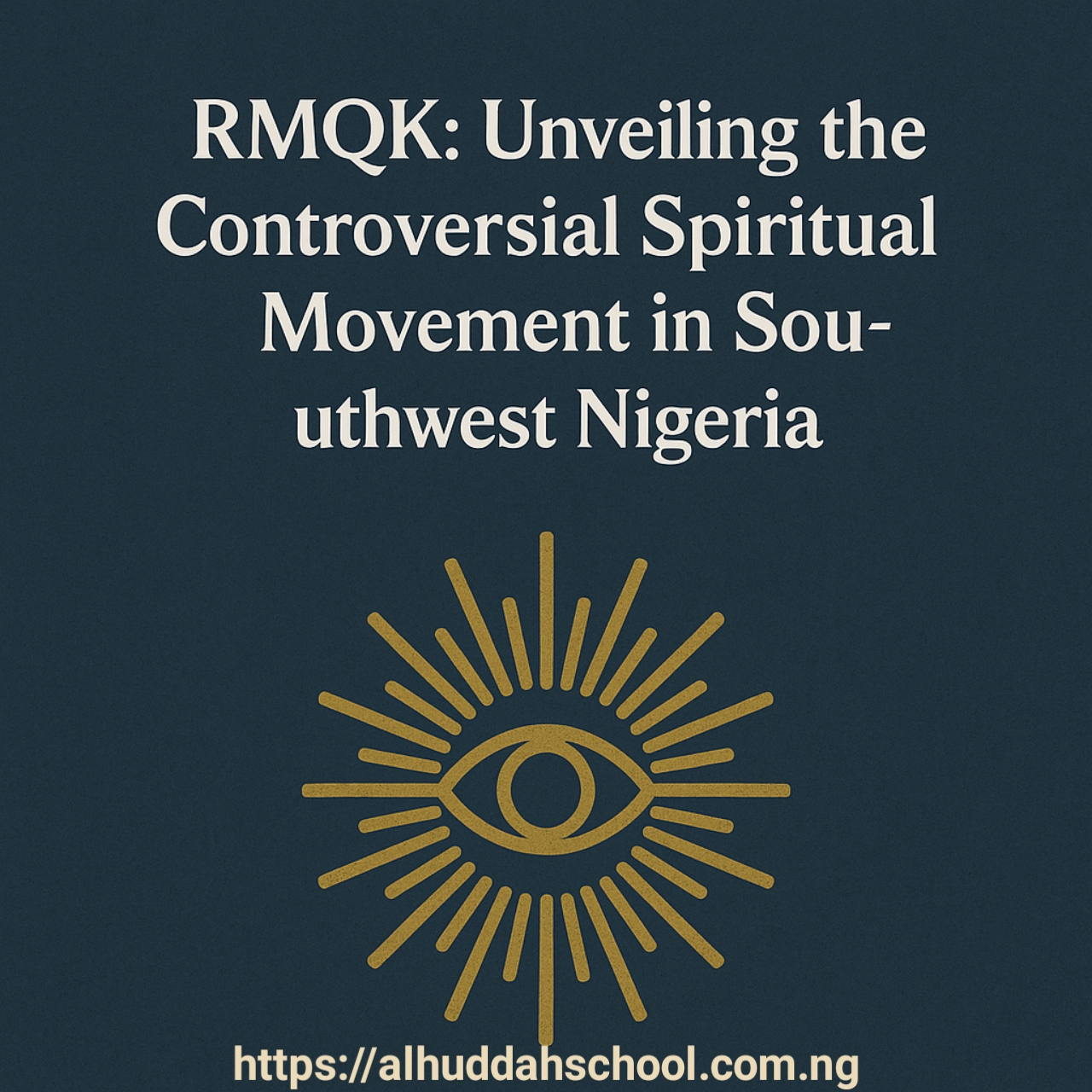
Table of Contents
In recent times, a spiritual movement known as RMQK has emerged in Southwest Nigeria, sparking debates and concerns among various religious communities. This article delves into the origins, beliefs, controversies, and public perceptions surrounding RMQK and what it means for spiritual discourse in Nigeria.
What is RMQK?
RMQK is an acronym that stands for Rukoyā’ilu, Morkoto-yā’ilu, Qoikoyā’ilu, and Kashfayā’ilu. The movement claims to offer deep spiritual insight rooted in ancient metaphysical traditions, including astrology, numerology, and the universal laws of energy. According to an article on Legit.ng, the group describes itself as non-religious and spiritual, welcoming followers from all religious backgrounds.
Origins and Leadership
The founder of RMQK is Shehu Maruwf Abolade Salahudeen Adagunja, who is also referred to as “Emi Agba” (The Greatest Spirit). He is seen as a central figure who channels spiritual wisdom. Another prominent advocate is Kewuyemi Najeem, a disciple helping to spread RMQK's teachings through social platforms and spiritual sessions. As reported in a Facebook report, their activities have quickly gained attention, especially in Ogun State.
Core Beliefs and Practices
Related Posts
At the core of RMQK are spiritual chants, invocations, and numerological rituals. Followers invoke the four jinns corresponding to the RMQK acronym. These rituals involve clapping, chanting, and singing during spiritual sessions. This has led to growing concerns among Muslim communities about the legitimacy of such practices. As stated in a report by Eduweb, some believe these rituals resemble traditional Yoruba mysticism more than Islamic orthodoxy.
Also read: The Importance of Mobile Phones in Student Life: Past, Present and Future
Public Perception and Controversies
Related Posts
RMQK has stirred significant controversy, particularly among Islamic scholars in Yorubaland. Many clerics argue that the movement is a subtle deviation aimed at misleading the Muslim Ummah. This viewpoint is backed by a viral Facebook post warning Muslims about the deceptive nature of the group.
Critics believe RMQK blurs the line between spiritual awakening and religious confusion. Yet, many followers find solace in its teachings, especially those disillusioned with conventional religious institutions.
Also read: Top 10 Mistakes to Avoid After Checking Your JAMB Result
RMQK's Response to Criticism
In a recent response, RMQK leaders insisted that they do not claim to replace religion but to help individuals understand the unseen spiritual forces influencing their lives. They state that religion and spirituality can coexist. Their rebuttal is captured in a Legit.ng report, where the group defends its philosophy as empowering and not deceptive.
Also read: How to Check JAMB Results: A Comprehensive Guide
Impact on the Community
While controversial, RMQK is undeniably influencing how people view spirituality. Some argue it offers an escape from rigid dogma, while others warn of its potential to erode religious values. Its growth reflects a shift similar to what we explored in our previous educational content.
Also read: Updated List of Schools That Do Not Conduct Post UTME Examination
Whether viewed as revolutionary or regressive, RMQK is shaping Nigeria's spiritual landscape.
Also read: 10 Best Courses to Study in Nigeria for Quick Employment
Conclusion
RMQK presents both a challenge and opportunity for spiritual dialogue in Nigeria. Its rise has forced communities to re-evaluate the nature of spiritual authenticity. For those seeking clarity, it is crucial to research, question, and consult trusted religious and spiritual leaders.
In a rapidly changing world, the line between spirituality and religion is often blurred. RMQK exemplifies this trend, and how we respond may well define the future of faith in Nigeria.
